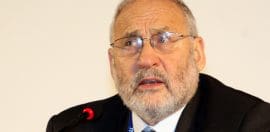Two good, two bad, one leader – 2019 in reflection

19 December 2019 at 8:47 am
In wrapping up the year, Community Council for Australia CEO David Crosbie, highlights two good trends, two bad trends and talks about one outstanding leader.
A lot has happened in 2019; the miracle election, the strength of the student climate protests, a stagnating economy, the emergence of the “quiet Australians”. Royal commissions became a means of building consensus for governments to act, partly because government alone seems less capable of prosecuting an agenda.
Across the year I have written more than 20 articles on these and other issues. In wrapping up the year I have chosen not to focus on a specific issue, but to highlight two good trends in 2019, two bad, and to talk about one outstanding leader who brought tears of belonging and hope to my eyes several times in 2019.
Let’s start with the bad trends first.
I cannot remember a time when civil space in Australia was so under threat. In 2019 we saw raids of journalist’s homes and the ABC, prosecution of whistleblowers, a growing chorus for “activists” to be denied charitable status, and an increasingly dismissive approach to long-held processes developed to protect our core institutions. Courts and judges have been critically pursued by church and state, for the first time ever a major bill was passed through the lower house of parliament with no debate at all, ministerial codes of conduct have been repeatedly flaunted, and conflicts of interest ignored. Governments seem to be more prepared to bluster their way through any form of criticism relating to their fairness, independence or probity.
“I cannot remember a time when civil space in Australia was so under threat.”
Individual privacy has diminished, freedom of information is in decline, government accountability is less transparent, and scrutiny of community-led policy advocacy is increasing.
It is not new that governments become annoyed when charities call out failures in their policies and actions. What is new is the heightened perceived threat to future funding and support if a charity is critical of government. The last thing Australia needs when civil space is being challenged is for charities to lose their voice. But I fear that has already started.
The second low for me in 2019 is a related trend of targeting individuals rather than their ideas or actions. In the public discourse of 2019, it was not the strength of your argument, the benefits of adopting your policy, or the evidence to support your proposition that would win the day. What really mattered was the capacity to personally attack and belittle anyone who might be advocating views contrary to your own.
The most recent example of this form of character assassination involved the NSW environment minister who dared to link a hotter climate, more fires, and more smoke into the one sentence. Minister Matt Keane was pilloried in major newspapers, not by attacking his policy positions or his arguments about climate change, but denigrating him as a “hose poser” because he had volunteered for a local fire brigade and not yet fought a fire.
We see the same pattern with so many conservative old white men attacking Greta Thunberg – not about climate science – but about her age, sex, dress, expressions, language, gestures, transport, housing, energy use, health, etc.
What is even more concerning is how often respected journalists are now co-opted into these kinds of personalised attacks. This shoot the messenger approach sits within an increasingly polarised media barracking rather than reporting.
It is important to note that vitriolic public discourse is not limited to one side of politics or one set of views. It is also worth noting that some public commentators seem marooned on an island of oppositional defiance berating anyone who dares question their world view.
In 2019, the art of disagreeing without personal vitriol and shallow gotcha point scoring appeared to be drowning in a sea of conflict driven, click bait informed, hyper partisan messaging where the primary goal is to denigrate and belittle your opponent, not address the issue. Surely, we are better than this?
Now for the good news – climate change.
One of the most positive aspects of 2019 is that the discourse around climate change is finally shifting. Until 2019, many Australians felt climate change was a theoretical postulation. Even if the scientists were right, climate change impacts were way off in the future, a very slowly shifting change that we would be able to adapt to over time. No longer is that view tenable.
“When kids are being kept inside because of the quality of the air, even the quiet Australians start to express concern. And that can only be a good thing.”
As I look out my office window, smoke haze is drifting across Canberra. People are frustrated and angry at the lack of leadership about fires, smoke, and climate change. All this on the back of massive street protests from our young people who rightly point to the science. A majority of Australians now prioritise climate change as the number one issue. We are much more focused about what is happening to our wildlife, our forests and our environment, now and in the future. When kids are being kept inside because of the quality of the air, even the quiet Australians start to express concern. And that can only be a good thing.
The other good news story for me in 2019 was the continued growth of values-based marketing. Strange as it sounds, more and more of the best and brightest advertising minds that spend millions of dollars creating messages and campaigns have recognised that values are critical in influencing behavior. At this year’s Super Bowl – the most expensive advertising in the world – two companies made what could only be called values statements rather than advertise their product or service. The Airbnb “we accept” campaign is one of the best social inclusion advertisements I have ever seen. The Audi “what do I tell my daughter” advertisement presents a compelling argument for equal opportunity. Companies are spending tens of millions of dollars to send out these messages because values sell.
And if values sell, then charities are in good shape for the future because in my experience values are at the heart of what we do, why we do it and how we do it. The challenge for charities is to better market our values and our value. Most charities are much more authentically values-driven than the companies using these values alignment marketing strategies.
Finally, I want to offer my thoughts on the leader of the year.
Sometimes in our darkest hour, the very best human qualities emerge and light the way forward. And so it was in New Zealand when a new prime minister showed the world how to help communities come together and begin to heal after a shocking betrayal of humanity.
Not only did the prime minister call New Zealanders together and reassure them that they were not a target because of hate, but she also encouraged New Zealanders to support each other in the grief and confusion saying: “because they are us, we, as a nation, we mourn them”.
These were not just words – Jacinda Ardern acted them out – wearing a headscarf as she consoled Muslim families of the victims. Only rarely do we glimpse this kind of insightful authenticity in leadership.
I learned a new greeting through watching the New Zealand prime minister: As-salaam Alaikum – peace be upon you. And that seems like a nice way to end 2019.
A special thank you to all at Pro Bono Australia (Wendy and Karen in particular) and the CCA members who enable me to write these articles each fortnight. It has been a privilege.
I hope 2020 brings you peace and new opportunities to make a difference in people’s lives.
About the author: David Crosbie is CEO of the Community Council for Australia. He has spent more than 20 years as CEO of significant charities including five years in his current role, four years as CEO of the Mental Health Council of Australia, seven years as CEO of the Alcohol and other Drugs Council of Australia, and seven years as CEO of Odyssey House Victoria.
David Crosbie writes exclusively for Pro Bono News on a fortnightly basis, covering issues of importance to the broader not-for-profit sector.







